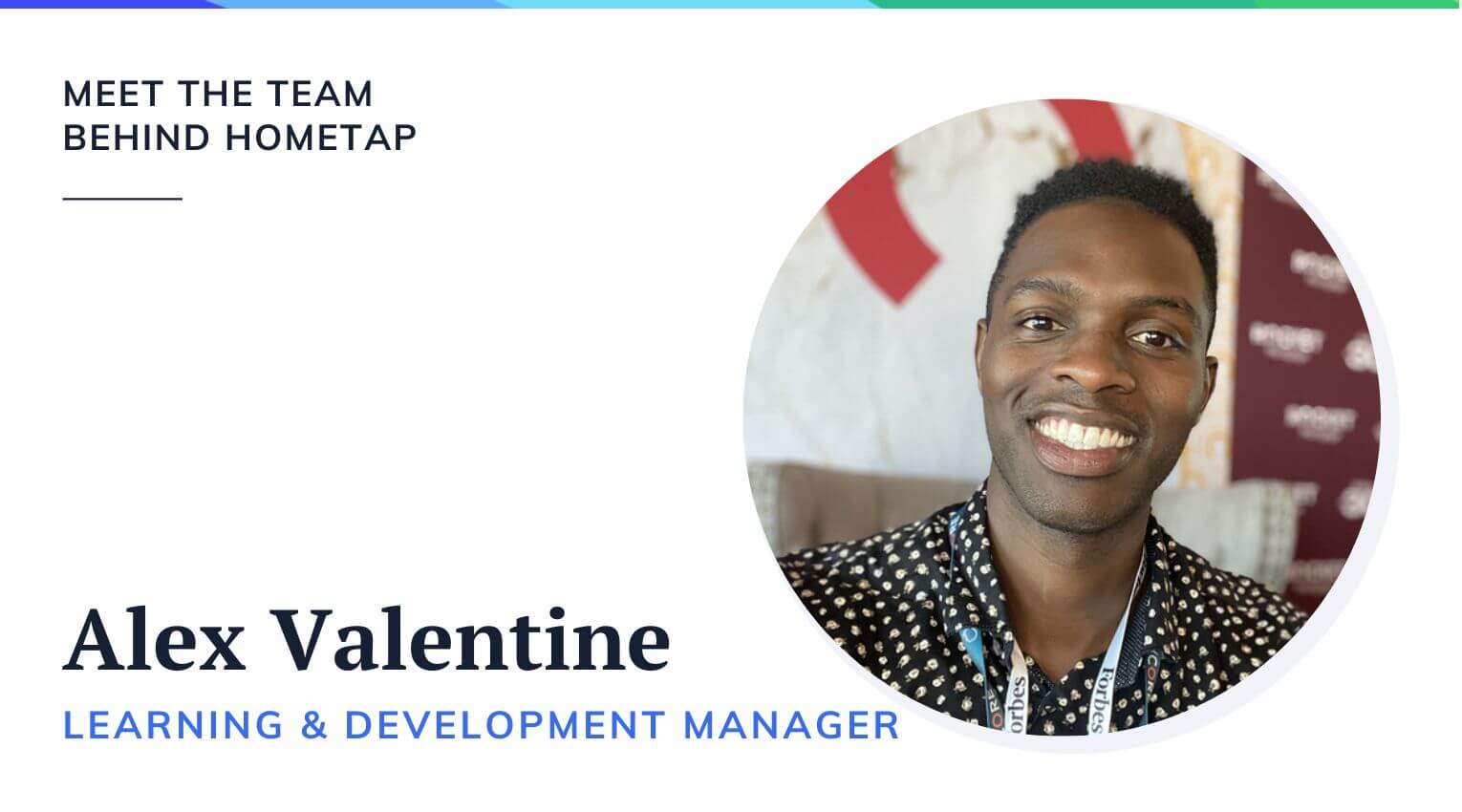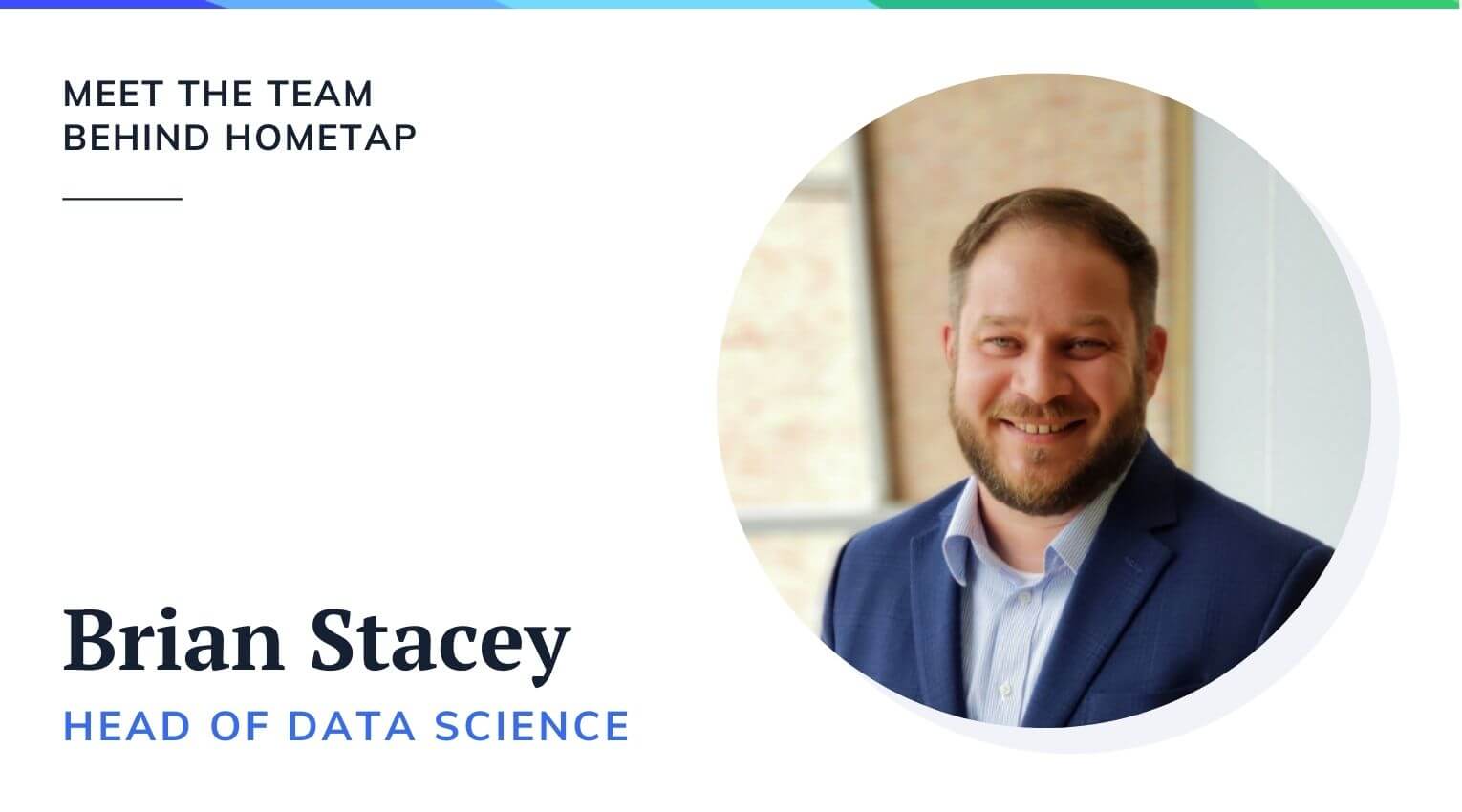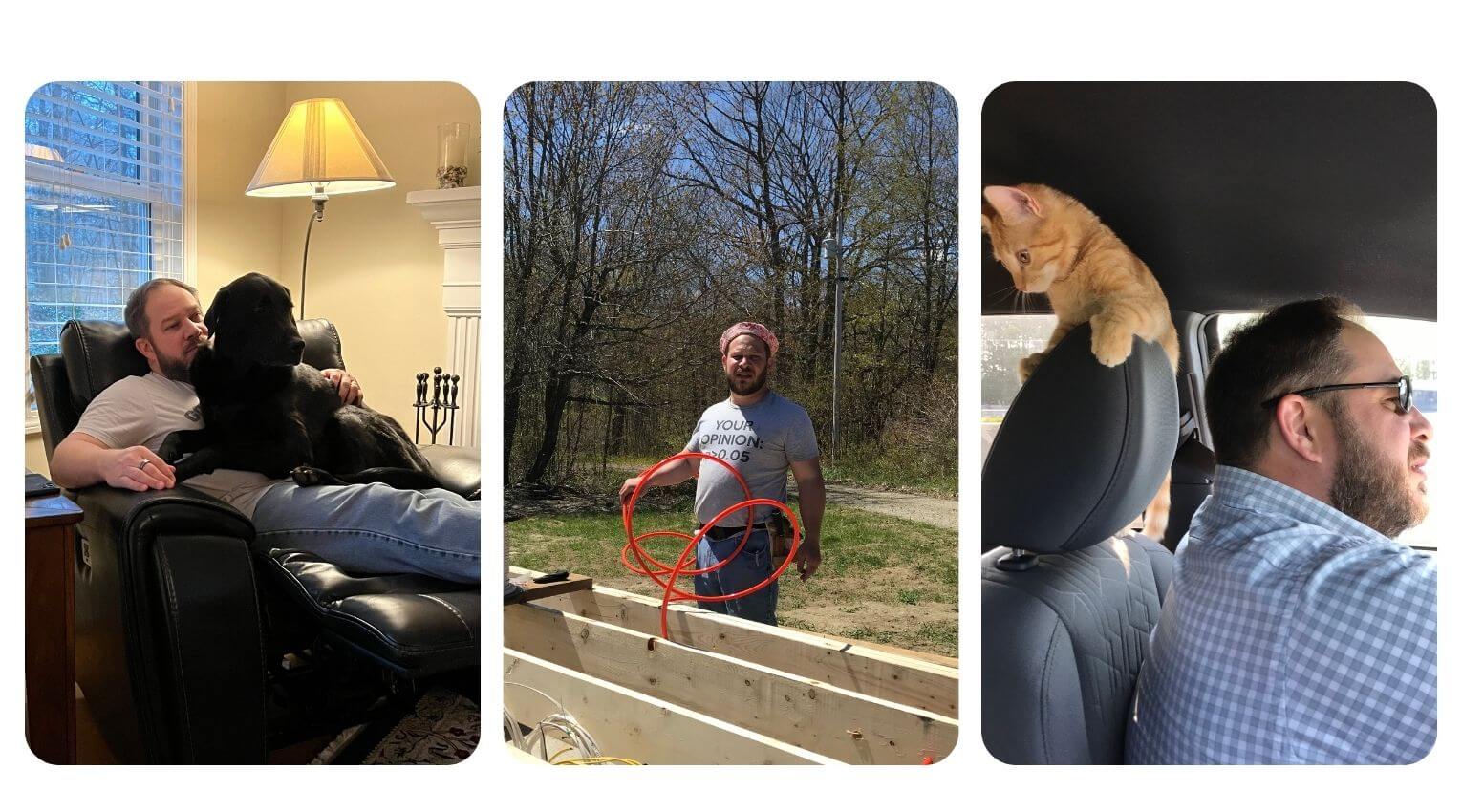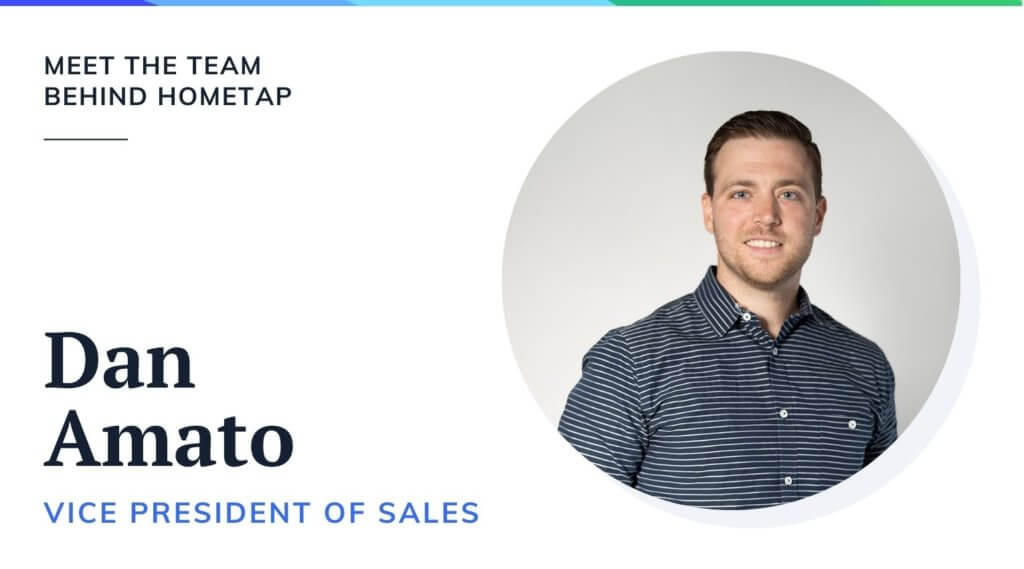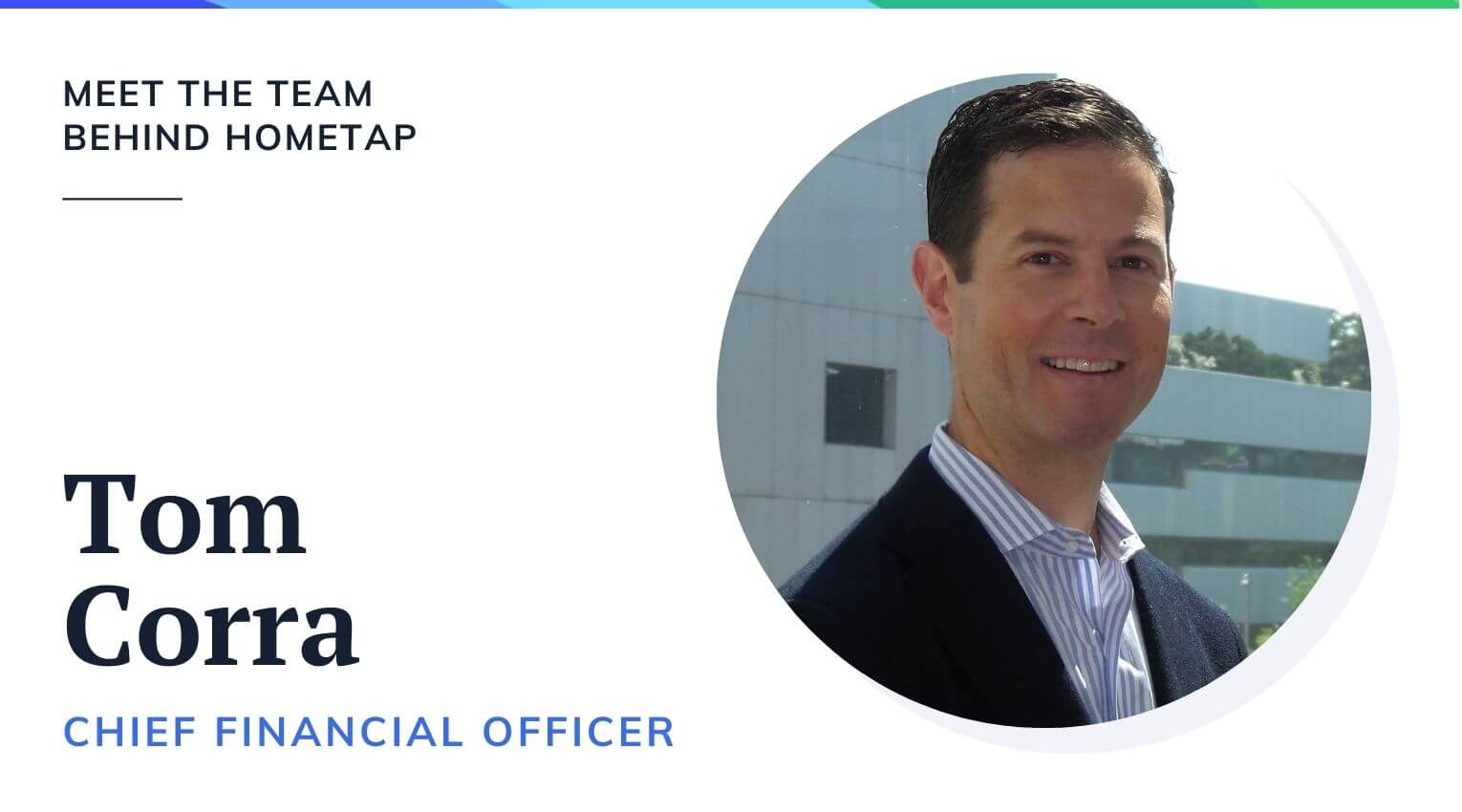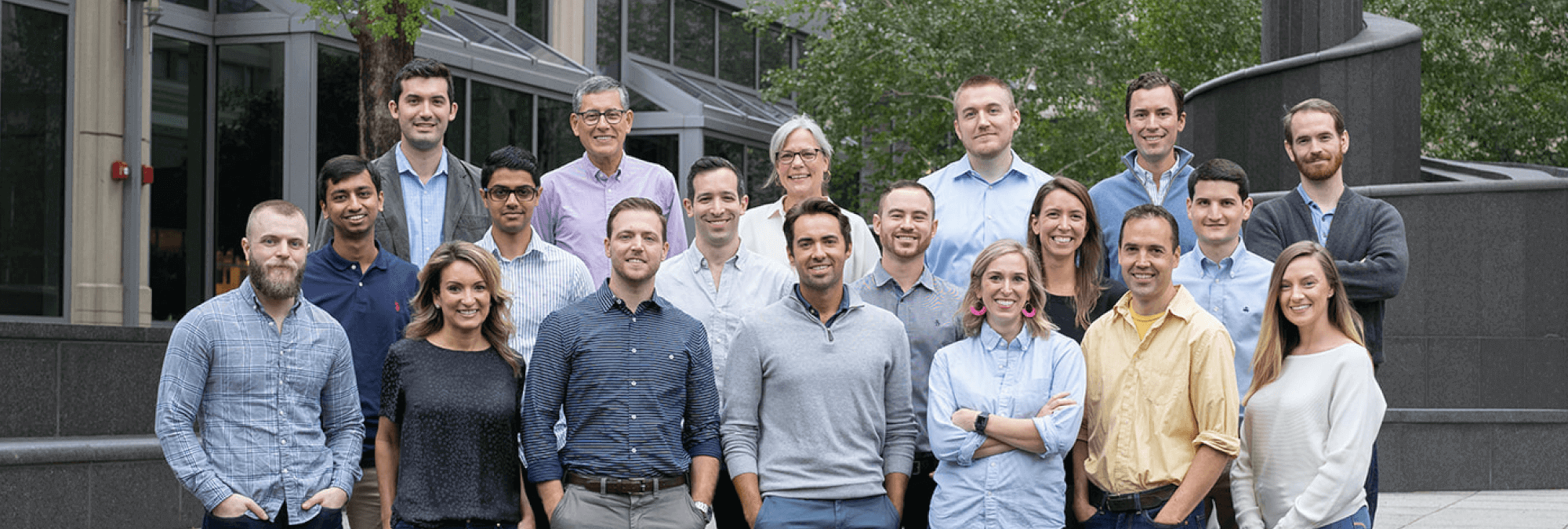Rachel heads up Hometap’s marketing team, managing all programs and initiatives to increase awareness and spread the word about our product among homeowners.

Q1: You have experience working for global corporations and joined Hometap at the very early-startup stage. What attracted you to Hometap?
I’ve actually worked for smaller, early stage companies the majority of my career, and have had a passion for startups ever since attending Babson’s MBA program, which is centered primarily around entrepreneurship.
Prior to joining Hometap, I was working at Ingenico Group, which is a global, multi-billion dollar payments company based in Paris, France. I ended up there because I was working for a mobile point of sale (mPOS) startup company in Boston called ROAM, which ended up getting acquired by Ingenico a couple of years after I joined. I was then given the opportunity to build a new marketing team from the ground up for the Ingenico North America Region, while helping to reposition the company from a hardware-only payment terminal manufacturer to an omni-channel payment solution provider. So although I was working for a large, global company, in many ways, a lot of the work I was tasked with was very similar to that of working at a startup.
Eventually, I wanted to get back to working at a true startup, while staying in the fintech industry. I stumbled upon Hometap, and was inspired by the company’s mission, and thought its home equity investment product was incredibly innovative and like nothing I had ever heard of before. As a homeowner myself, Hometap’s value proposition also really resonated with me. But what really sealed the deal was the company’s unbelievably impressive leadership team. I love being surrounded by really smart people who I can bounce ideas off of and continue to learn from, and I knew if I came to Hometap, I’d have the opportunity to grow.
Q2: You’ve previously worked in various parts of the technology world, both in the payment solutions and mobile apps space. Are there any lessons or skills you’ve learned at previous companies that you find yourself applying at Hometap?
Every company I’ve worked at has offered unique products or services that are very different from the next. A lot of my career has been in the fintech industry, and although the companies have each been very different, they’ve all taught me the importance of really understanding the customer, what their pain points are, and how your product/services can help them overcome these challenges or achieve their goals. And whether that’s marketing a mobile point of sale solution to a retailer or marketing a home equity investment product to a consumer — it’s all about understanding your audience, where and how to reach them, and what messages will resonate with them. It’s also important to not be afraid to think outside the box and get creative in order to differentiate from the competition. Although the marketing channels I’ve used to reach my customers have not always been exactly the same — especially when going from B2B to B2C — I’ve found that the same general principles hold true.
Q3: What’s the biggest challenge you face as Head of Marketing?
I think the biggest challenge is finding the right balance between driving the current programs and initiatives that are needed to ensure we’re hitting our quarterly goals and KPIs, while also pulling my head up to think about long-term strategy: i.e. what’s going to help us build and evolve our brand? How can we continue to differentiate ourselves in an increasingly competitive market and secure our spot as the category leader? What are some of the new channels or higher funnel campaigns we should be thinking about that may not lead to immediate conversions but are more of a “long game”?
We have aggressive growth goals at Hometap, so it’s incredibly important that we continue to hit our weekly/monthly/quarterly targets, but if I’m not thinking further out, we’ll end up falling behind. Luckily, I have an incredibly talented team who I can trust to execute on all of our current initiatives, which has allowed me to spend more time thinking about what comes next.
Q4: What’s the most rewarding part of the role?
I’d say it’s a toss up between seeing how far my team has come/how much each individual has grown since joining Hometap and seeing how Hometap is truly making a positive impact on so many homeowners’ lives.
The manager/leader in me loves mentoring each of the members of my team, pushing them to think about something in a different way or to take ownership of a project that may be outside their comfort zone all the way from conception through completion. Not every idea is a homerun, and there will of course always be times when a campaign or program fails, but it’s really rewarding to see each member of my team learn and grow from these experiences…and even more rewarding when something they’ve worked on meets or exceeds expected results.
At the same time, the growth we’ve had has allowed us to help so many homeowners achieve their goals and improve their financing situations. Reading the hundreds of Trustpilot reviews talking about the incredible experiences homeowners have had with our company and how receiving a Home Equity Investment from us has changed their lives has made this the most rewarding job I’ve ever had.
Q5: How do you stay apprised of the most current practices in marketing? What are you reading, listening to, or watching?
I’ve always loved HubSpot’s content and use them as a regular resource for best practices across all functional areas of marketing, and especially content marketing. I subscribe to a number of fintech marketing blogs/newsletters; the Fintech Marketing Hub is one. I really enjoy Backlinko’s newsletter and content on SEO. And I keep a very close eye on many of the fintech companies that I think are doing a great job from a brand/content/social media/demand generation perspective. I’m constantly screenshotting different social posts or digital ads from many of these brands and sending them to my team as inspiration. I’m sure it drives them nuts but I just can’t help myself.
Q6: What’s the best advice — marketing-specific or not — that you’ve received during your career?
“Producing high quality work, and consistently delivering results is not always enough to be successful in marketing. You need to make sure people understand all of the work that goes into the work you’re doing and what happens behind the scenes.”
It’s never really come naturally to me to talk about all the great work that my team or I have produced. And early on in my career, I took sort of a “head-down” approach, thinking that if I just consistently delivered high quality work, the results would speak for themselves. This strategy worked fine up to a certain point, but I’ve found that as I’ve taken on more leadership roles, it’s critically important that other departments and leaders throughout the organization understand the importance of marketing and all the work that goes into the millions of campaigns and initiatives we’re juggling that ultimately drive revenue for the business. Not only does this ensure my team gets the credit and recognition they deserve, but it also helps with securing the budgets and resources needed to continue to meet/exceed our goals.
AT HOMETAP
Q7: You oversee so many projects happening simultaneously (and for the time being, remotely). How do you stay on top of everything?
I’m a pretty organized person by nature, but I have a few tactics that seem to work well for me:
- I start each week with a list of to-dos, which are my top priorities for the week. I like to write these down in a notebook that I always have in front of me. There’s something so satisfying about crossing things off that list with a pen.
- I have my team use Monday.com to manage projects and tasks. This is especially useful for projects that involve multiple people or teams, which the majority of the things we work on do.
- I have weekly one-on-ones with each member of my team, where we use running agendas in Google Docs. This allows me to stay in the loop on all of the projects that are in play, and helps ensure things are moving forward and on schedule.
Q8: What are the top qualities you look for when hiring a new member of the marketing team?
Having the necessary skills/experience for the specific position is obviously important. But I think the one quality I look for, no matter what role I’m hiring for, is natural curiosity. Even if a person has what looks like the “perfect” background or experience on paper, if I talk to them and don’t get the sense that they’re a naturally curious person with a desire to learn and hunger to grow, then I won’t hire them. I’d much rather hire a person with less experience, but who comes to the table with lots of insightful questions or brings up an interesting angle or idea during an interview that I hadn’t yet thought about. These are the people that will take the time to really dig in, roll up their sleeves, quickly get up to speed, and start adding immediate value to the team.
Q9: Do you have a go-to interview question? What is it?
Hmmm…nothing super interesting or unique. I always ask people to simply tell me their story and call out any transferable experiences to this role. This helps me understand how well they can “market” themselves, and also helps me identify how much research they’ve actually done about the company and position before talking to me. I also make sure I leave plenty of time for them to ask questions — one of the ways I test their level of ‘natural curiosity’.
Q10: If you could trade jobs with anyone else at Hometap for a week, what position would it be?
I think it would be Gregg Damiano, Director of Channel Sales. I’ve helped build partner programs at previous companies, and have been pretty involved in helping to lay the foundation for Hometap’s existing partner strategy (since ownership of this program used to sit within Marketing), and I just find the partner channel really interesting. I think it’s a huge opportunity for Hometap and there are so many directions in which we can take this, so I think it would be fun to dedicate an entire week to talking with partners, gaining new insights, and coming up with new creative ideas to help drive our partner program forward.
Q11: What’s one quality someone needs to be successful at Hometap?
Communication. There are so many cross-functional initiatives happening at all times, so it’s really important to be able to effectively communicate with other people/teams in order to drive projects forward and ensure things don’t get lost in translation.
OFFICE CULTURE
Q12: What qualities do you look for in a company’s office culture?
Transparency, trust, flexibility, fun (but not forced fun…I HATE this!)
Q13: You’ve been with Hometap for almost three years now. What’s one word you would use to describe the culture here?
Collaborative.
Q14: What are the best and worst parts of working from home?
Best: Having a more flexible schedule. I still have all of my meetings during normal work hours, but if I need to run an errand during the day or take care of my kids if they’re home sick from school, I can more easily do that. And if doing these things impacts the amount of work I can get done on that day, I can finish up later that night.
Worst: Rarely leaving my home. Once I get in the zone, it’s often really hard for me to remember to take a break or go for a walk and get some fresh air. I often go the entire day without ever stepping outside. I’m definitely more productive at home, but it’s not always great for my mental or physical health.





